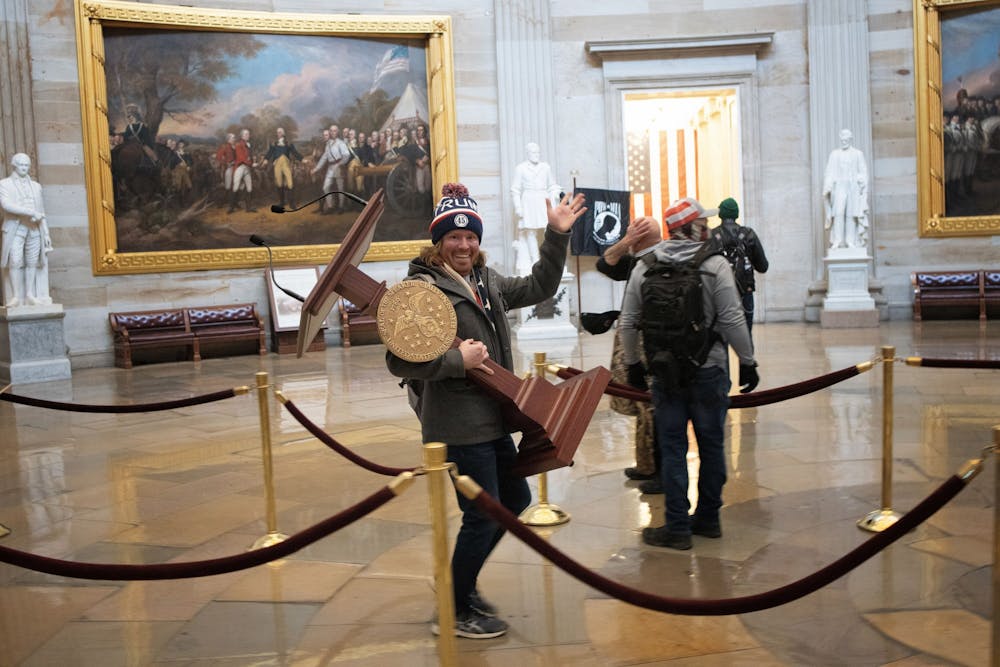It wasn't the storming of the U.S. Capitol that scared me a year ago, it was the sinking feeling that nothing of value would change because of it.
The attack on the Capitol was, in many ways, the explosive finale of the tumultuous year of 2020. There were countless protests against police brutality, a global pandemic that brought a rapidly rising death toll and a presidential election.
A decade's worth of history was bundled into a single year and ended with the only attack on the U.S. Capitol since the burning of Washington in 1814.
While I and many others don't believe it was an insurrection, but rather a mob of angry and violent people acting without a clear plan, it still revealed how politically and socially tense things have gotten in the U.S.
The term being danced around, but never spoken, is "civil war." As hyperbolic as it may sound, it's a growing concern. One that many hesitate to speak on for the sake of appearing alarmist. Indeed, it sounds ridiculous to even humor the idea that the U.S. could have another conflict on the scale of the American Civil War, and I'd agree.
Related: [IU experts reflect on Jan. 6, 2021, attack on the U.S. Capitol]
However, the state the U.S. is in could be best described as a kind of "cold" civil war, a conflict acted on without outright violent conflict, at least in most cases.
The divide among citizens, politically and socially, is evident from news media to polls that say up to 54% of voters would support states separating from the union. Historians and writers have been publishing piece after piece discussing how and when a coming conflict could happen.
The common point is no one expects a civil war to happen, though it feels obvious in hindsight.
America has had numerous conflicts that felt insurmountable. The Civil Rights Movement saw numerous acts of violence bring the nation to its knees. It made the nation better, at the cost of Black people risking life and limb for their rights.
While there may be parallels to the turmoil from back then to the climate we find ourselves in today, the key difference is I don't see a resolution through all this turmoil in 2022, a full year after the attack.
Instead, things have gotten substantially worse.
COVID-19 cases are rising at a record-breaking pace, unemployment rates are barely mending and American citizens have only gotten more politically divided.
Related: [OPINION: One year after the Jan. 6 insurrection, democracy has not been rebuilt]
Citizen trust in government is incredibly low, and we're seeing the legal system cater to far-right ideals in cases like Roe v. Wade, which is under scrutiny. The protests against police brutality have caused at least 25 deaths in ensuing conflicts, a high-profile case being that of Kyle Rittenhouse, who had killed two protesters in Kenosha, Wisconsin. While many people found the Rittenhouse trial to be a miscarriage of justice, just as many would give Rittenhouse a standing ovation.
It's difficult to not be cynical about the future of the nation. While rationality tells me no armed conflict would arise here in America, another part of me grows ever concerned about where this country is headed.
The attack on the Capitol a year ago should've been a wake-up call to the nation, and yet it seems people are asleep at the wheel.





